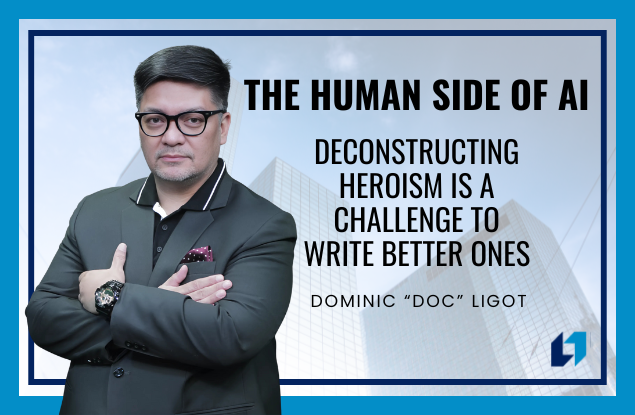Jerrold Tarog’s Luna–Goyo–Quezon trilogy has often been praised for tearing down our heroes… for daring to show Antonio Luna as volatile, Gregorio del Pilar as vain, and Manuel Quezon as vainly pragmatic. The films mark the high point of a long cultural trend: the deconstruction of heroism.
And yet, after the applause, what are we left with? The ruins.
Deconstruction, in art or history, was never meant to be the endgame. It’s a clearing of the ground… a philosophical demolition designed to make space for rebuilding. But somewhere along the way, we mistook demolition for enlightenment. We’ve gotten so good at exposing hypocrisy that we’ve forgotten how to imagine greatness.
Tarog’s trilogy proves this paradox. Heneral Luna shattered the marble statue of the perfect general. Goyo dismantled the myth of youthful heroism. Quezon unmasked the vanity behind political success. Collectively, the films tell us what kind of heroes we shouldn’t worship. What they don’t tell us is what kind of heroes we still need.
That’s the real challenge now… not to resurrect blind patriotism, but to write better heroes.
Because a society that can no longer believe in any form of heroism becomes dangerously easy to manipulate. Cynicism doesn’t make us wise; it makes us numb. When everything is a lie and everyone is corrupt, the loudest demagogue can masquerade as the only truth-teller.
Yes, deconstruction is necessary. We needed to strip the varnish off our national myths… to confront the egos, failures, and contradictions of those we were taught to worship. But the act of tearing down is only half the work. What comes next is creation: the hard, hopeful labor of defining who we want to become.
Heroism doesn’t have to mean perfection. In fact, it shouldn’t. Maybe a “better hero” today is someone who admits flaws but still acts anyway; who refuses despair even when idealism feels outdated; who builds when everyone else is busy mocking.
In our current landscape… where AI fabricates truths and corruption eats through our institutions… and at the same time corruption scandals and false prophets dominate the media… the hunger for new narratives is palpable. People don’t need more ironic mirrors showing how broken we are. They need stories that restore the courage to fix what’s broken.
Deconstructing heroism was never meant to end with cynicism. It was meant to challenge us to write braver, truer, more complex versions of it. That’s the real inheritance of Tarog’s trilogy… not its despair, but its dare.
So yes, dismantle the myths. Question the saints. But don’t stop there. If you destroy the idea of a hero, you’re left with nothing but villains. The next great act of national storytelling won’t be another critique of heroism. It will be the rediscovery of it… raw, conflicted, human, and still capable of light.
Because breaking is easy. Building is the hard part.
And that’s exactly why it’s worth doing.
Author’s Note: The thoughts shared in this article started as an emotional rant on social media. You can find the original here: https://www.facebook.com/share/p/1BSunhD5bK/
Dominic “Doc” Ligot is one of the leading voices in AI in the Philippines. Doc has been extensively cited in local and global media outlets including The Economist, South China Morning Post, Washington Post, and Agence France Presse. His award-winning work has been recognized and published by prestigious organizations such as NASA, Data.org, Digital Public Goods Alliance, the Group on Earth Observations (GEO), the United Nations Development Programme (UNDP), the World Health Organization (WHO), and UNICEF.
If you need guidance or training in maximizing AI for your career or business, reach out to Doc via https://docligot.com.
![]()



